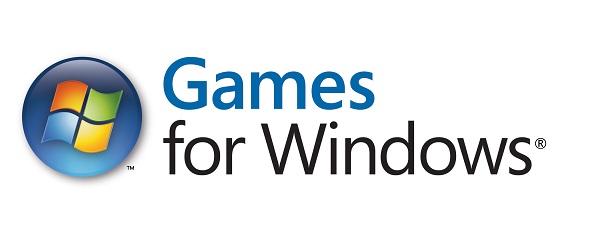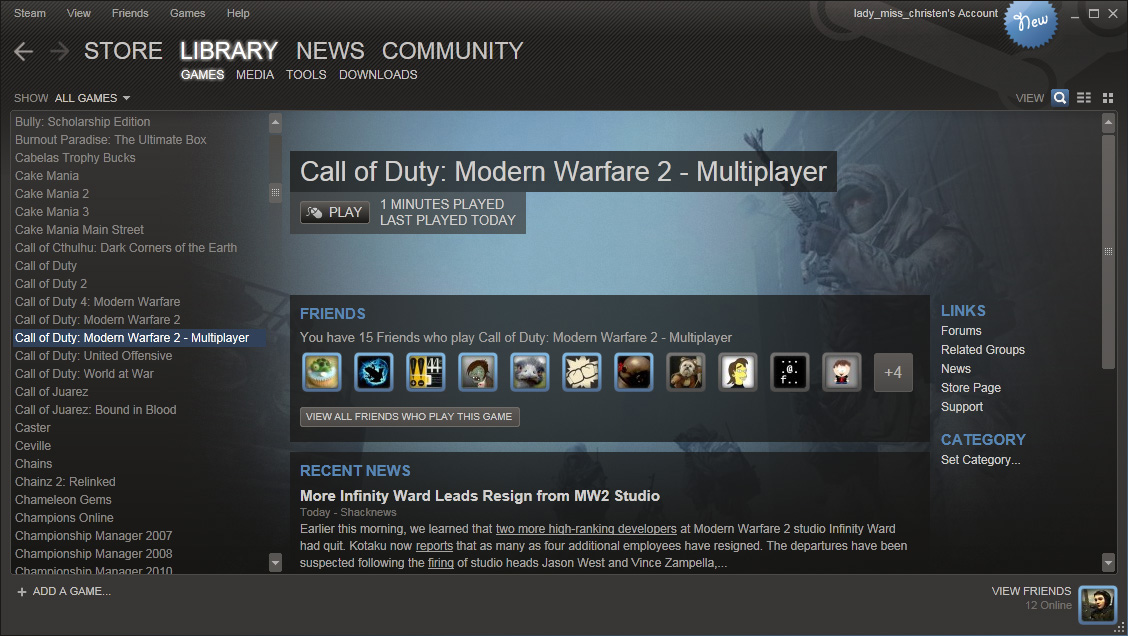For some time now, serious digital gaming on the PC has been dominated by one brand alone: Steam.
And so it should be. No-one else has offered a more straightforward, integrated, transparent approach to gaming. Steam has made PC gaming infinitely better, and it’s conceivable that without Valve’s efforts, gaming with a keyboard and mouse would be in far worse shape today.
But Microsoft, never content to back down from a challenge, are fighting back with their new iteration of Games for Windows Live.
Games for Windows Live – or GWFL as it’s known – was always an attempt to mimic the kind of success of Xbox Live, but on the PC. Alas, GFWL is still a bit of a mess – in part because it just doesn’t know what it’s trying to do. And at the end of the day, it isn’t anywhere near as good as Steam.
So, as a favor to Microsoft, here are some tips to improve their home for PC gaming.
1. Cross-Platform Integration
One big advantage Microsoft has is its wide reach. They have Xbox Live and now have Windows Phone 7. Wouldn’t it be amazing if you could integrate your activity in games across all the different platforms? Or at least find a way that you activity on Xbox Live could be reflected on all platforms?
It’s true that there is some integration. But one or two titles isn’t enough. Hopefully, with games like Age of Empires Online, Microsoft can find a way to have your activity on your mobile affect what’s going on online and vice versa. This would be a real advantage, and not just a gimmick, and the kind of thing Microsoft must move toward.
2. A Games Destination, Not a Store
When you open up the ‘Games for Windows’, what you get is a storefront, what you’ve downloaded and some settings. That’s it.
On its surface, this is about everything you need. But part of Steam’s success is that it bills itself as your ‘one stop for everything’ for games. You log in and you have your library of games with large, attractive icons. You can check what your friends are up to, what sales there are, all very quickly. It’s not just a way to buy games, it’s a ‘place for gaming’.
The point is that while GFWL Marketplace feels like a store, Steam feels like a destination. It’s like the difference between iTunes and the Amazon Music store. Sure they do pretty similar things; but one feels like something you want to go to, while the other is a site you have to go to.
To improve GFWL, Microsoft really need to recreate an Xbox Live functionality that works as a platform rather than a storefront. That means that you should want to log in, rather than simply having to. Friend’s lists and integration with other Microsoft products (like Messenger) would do a lot to bring some of XBL’s social aspects to the PC.
3. Selection, Selection, Selection
Right now, the selection of games on GFWL is paltry.
While it’s nice to see some big names we recognize – Gears of War, Resident Evil etc. – there are glaring holes. I know it’s an obscure, small title, but Call of Duty: Black Ops, anyone? Or any of the Call of Duty ‘Modern Warfare’ games? Or Mass Effect, or Dragon Age? Why, when presented with this half-baked solution, would anyone choose to use GFWL instead of Steam. This is something that needs to be fixed ASAP.
If only Microsoft had some kind of established relationships with game makers… You know, like they had signed hundreds of deals with publishers and developers who made games for some kind of ‘games console’. Yeah, that’d make this way easier and even more inexcusable.
4. Um, Search?
“Wait, what?” I can hear you say. But yeah, there’s no search function.
Sure, right now, with such a small selection it’s not a huge deal, but who releases, well, anything in 2010 without a search feature?
But not only is it impractical, it’s a sign Microsoft isn’t thinking clearly enough about the user experience, and is instead concerning itself with selling titles. If you want people to buy things, you have to make it easy – and not having search is unforgivable.
5. Product Keys? C’Mon Microsoft
Recently, Microsoft promoted GFWL by selling Age of Empires III for $0.10. After an unacceptably long installation (even on a fast machine), you were asked to install a product key. Because apparently it’s 2003 and you’re installing a copy of Windows.
There is no reason that a digitally distributed game should ask you to type in an arcane product key. It’s something that is yet another sign that Microsoft needs to concern itself with the overall experience of using their service, rather than thinking about things in terms of sheer practicality. It’s true that other services like Direct2Drive yused product keys. But Steam doesn’t. You buy a game and you play it. And it’s that kind of click-and-forget-it simplicity that could be GFWL’s big selling point.
User First, Store Second
What’s clear is that Microsoft doesn’t want to give up on PC gaming. And nor should they; it’s a massive market that has been needlessly allowed to stagnate.
But if Microsoft want to both challenge Steam and replicate their Xbox Live success, they need to focus on key features: social features, simplicity and turning GFWL into a destination, not an ignored offshoot of Xbox Live.





Ummm, technically Steam does require product keys for certain games. It depends on the level of steam integration that game publisher has programmed. However, the key will always pop up on the steam overlay for quick easy entry, and then you’re on your way! =)
Steam is where it’s at. Microsoft will have to pull some seriously awesome shenanigans in order to compete.